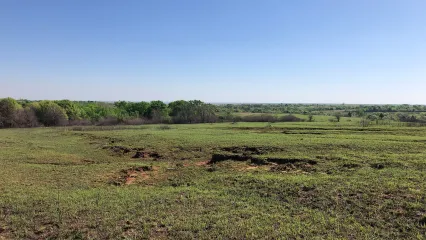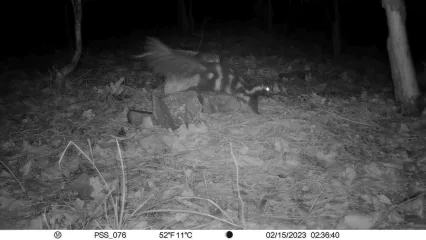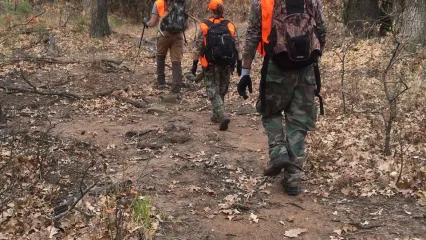Attention Non-Residents
The Oklahoma Wildlife Conservation Commission adopted new rules in 2025 that require non-residents accessing certain Oklahoma public hunting and fishing areas to check in and out of the area. By checking in and out of these areas, hunters, anglers, shooters, birdwatchers, hikers and any other users can help the Wildlife Department better understand how the area is being used. There is no additional cost associated with checking in or out of an area. There is no limit to the number of check ins for an individual in a year.

Contacts
Area Details
The Grady County Wildlife Management Area encompasses 1,036 acres located about 4 ½ miles east of Rush Springs, Oklahoma in Grady County. This WMA is about equally divided between two non-contiguous tracts with an additional 33 acre non-contiguous tract located between the other two. The area is characterized by open uplands bisected by wooded draws and creeks typical of the interspersed postoak-blackjack oak and tall grass prairie habitat types.
- Quail: Present but in low numbers
- Turkey: Rio Grande turkey are transient through the area.
- Deer: White-tailed deer inhabit the area.
- Rabbit: Cottontail rabbits inhabit the area.
- Furbearers: Coyote, bobcat, raccoon and other common furbearers inhabit the area.
- Dove: Some local doves are occasionally present.
- Waterfowl: Various species of waterfowl may occasionally utilize the small ponds located on the wma.
Prescribed fire and periodic grazing may be utilized to enhance wildlife habitat.
N/A
Limited fishing opportunity exists. Most ponds located on the wma are small enough to cast a lure clear across.
Area closed to all activities for controlled deer hunts:
Oct. 25 - Nov. 2, 2025
Nov. 22-30, 2025
Closed Seasons
Same As Statewide Seasons
Seasons w/ Special Restrictions
- Deer Archery, Turkey Fall Archery, Dove, Crow, Rail, Gallinule, Duck, Merganser and Coot, Sandhill Cranes, Quail, Squirrel, Rabbit, Snipe, Woodcock, Pursuit with Hounds for Furbearers, Predator/Furbearer Calling
Closed during deer muzzleloader and the first nine days of deer gun season.
- Turkey Fall Gun
Closed during deer muzzleloader season. Tom only, shotgun only.
- Trapping
Open to water sets, live box traps and enclosed trigger traps only.
- Turkey Spring, Youth Turkey Spring
One-tom limit; seasons combined.
No camping allowed.
For One Survey Team, “Getting Skunked” Smells Like Success
Getting skunks on camera was a critical first step in an Oklahoma State University survey team’s effort to learn more about the Plains spotted skunk population in southeastern Oklahoma. The secretive and little-known skunk was detected at about half of the survey sites on the Ouachita National Forest.
Apprentice Designation: A Learner's Permit for Hunting
Hunter education has greatly reduced hunting accidents, but if you can’t complete a course right away, the apprentice designation allows you to hunt under supervision. It works like a learner’s permit, giving you the chance to gain real experience safely until you finish hunter education.


